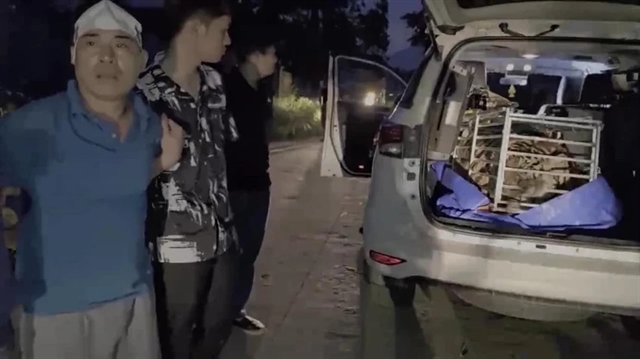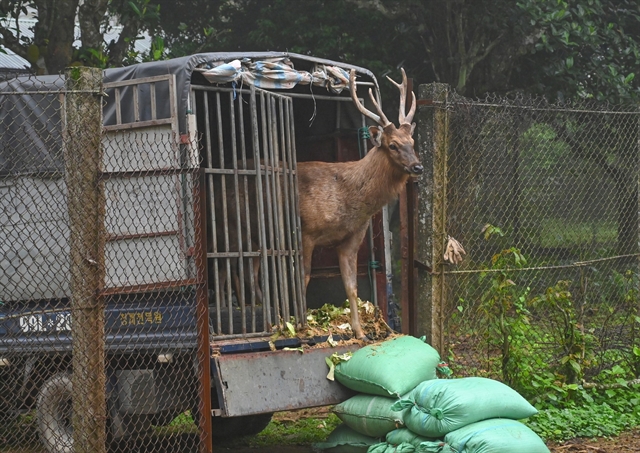 Environment
Environment

 |
| A sambar deer among the 12 individuals that were transported to Cúc Phương National Park in northern Việt Nam for care and rehabilitation. — VNA/VNS Photo |
HÀ NỘI — The Cúc Phương National Park’s rescue team, in coordination with Save Việt Nam's Wildlife (SVW) and the Forest Protection Sub-Department of Đà Nẵng, transported 18 wild animals from the central city to the park on Friday for care and rehabilitation.
The rescued include 12 sambars (Rusa unicolor), two northern pig-tailed macaques (Macaca leonina), three Stump-tailed macaques (Macaca arctoides), and one Indian python (Python molurus). These are all listed as endangered, precious, and rare.
According to a representative from the Đà Nẵng Forest Protection Sub-Department, the agency sought cooperation with the Cúc Phương National Park to care for these wild animals, with the goal of sharing and enriching the gene pool. This effort aims to help prepare the healthiest individuals for future rewilding initiatives involving endangered and rare species that are currently at risk of extinction in the wild.
Lê Phương Triều, Deputy Director of the Cúc Phương National Park, stated that many organisations and individuals have handed over rare and endangered wild animals to the park's Centre for Rescue, Conservation and Development of Creatures, as well as conservation facilities nationwide in general.
This is a positive sign, reflecting the widespread implementation of the Government’s direction on wildlife conservation, and growing public awareness and support. Transferring animals to qualified conservation centres not only demonstrates a sense of responsibility for conservation but also carries profound humanitarian value, offering many wild animals a chance to return to their natural habitats.
The Cúc Phương National Park, widely known as the country’s “capital of conservation,” is currently home to thousands of endangered and rare wild animals. Its conservation programmes are recognised at both regional and global levels, including those to protect endangered primates, tortoises and freshwater turtles, and carnivores and pangolins. With a nearly 200-hectare buffer zone, the park serves as an ideal sanctuary offering a real chance to revive wild animal species with rescue, rehabilitation, care, and long-term conservation. — VNA/VNS




